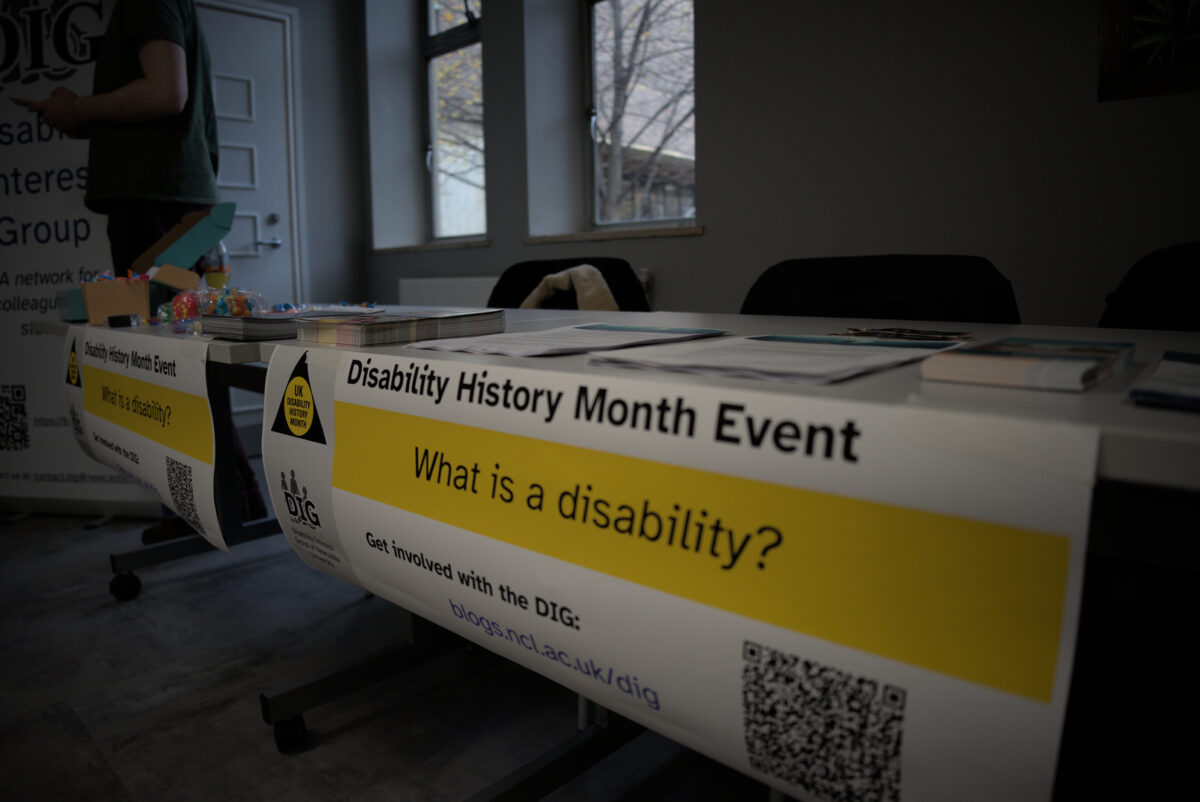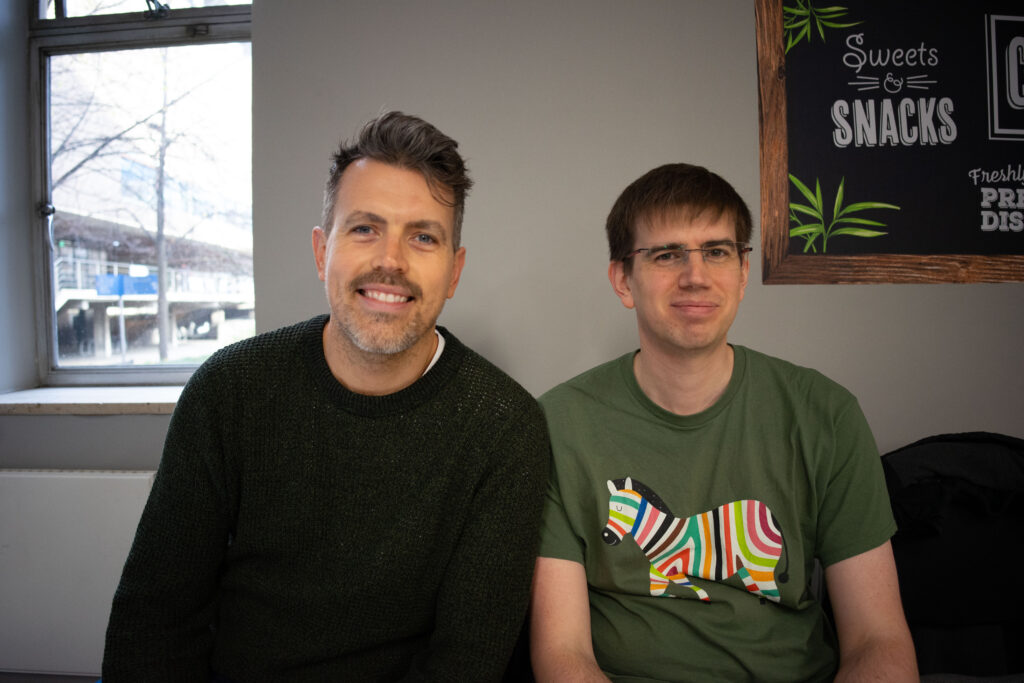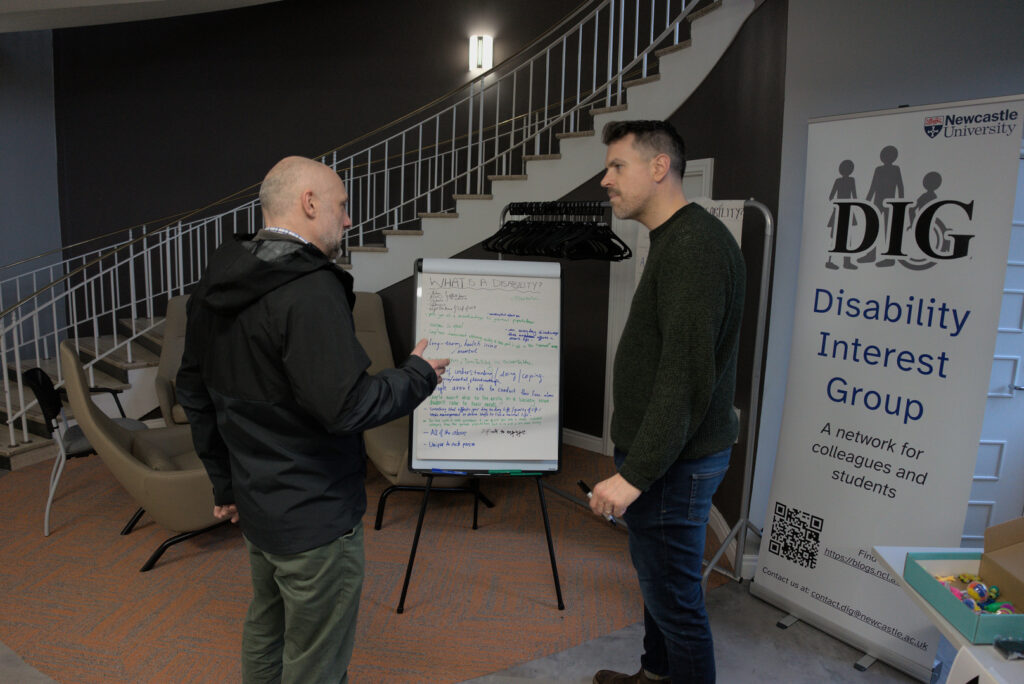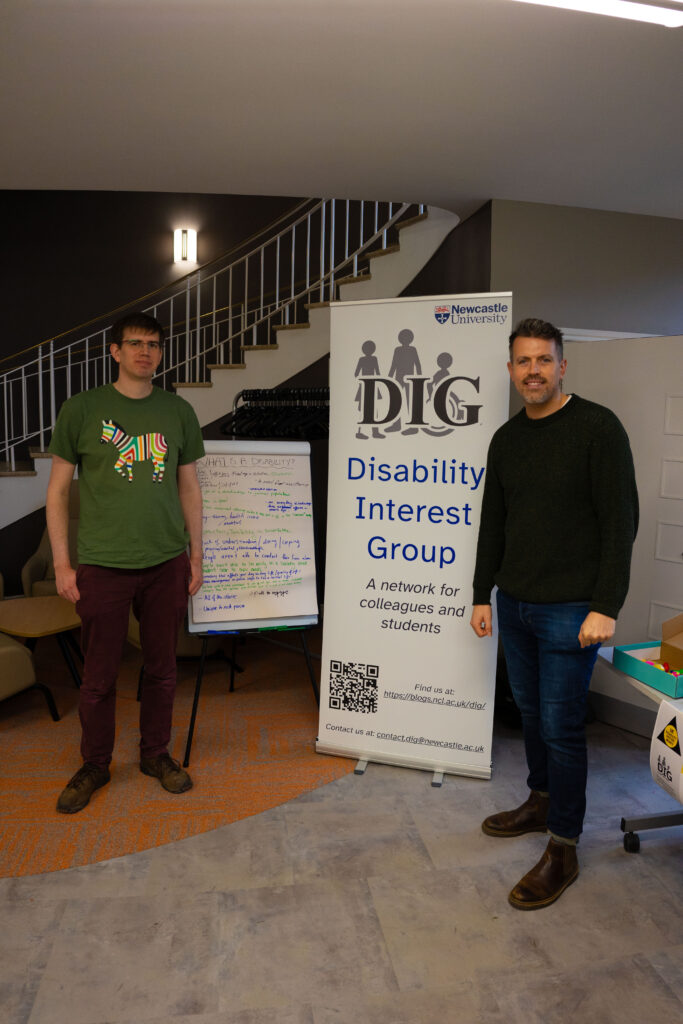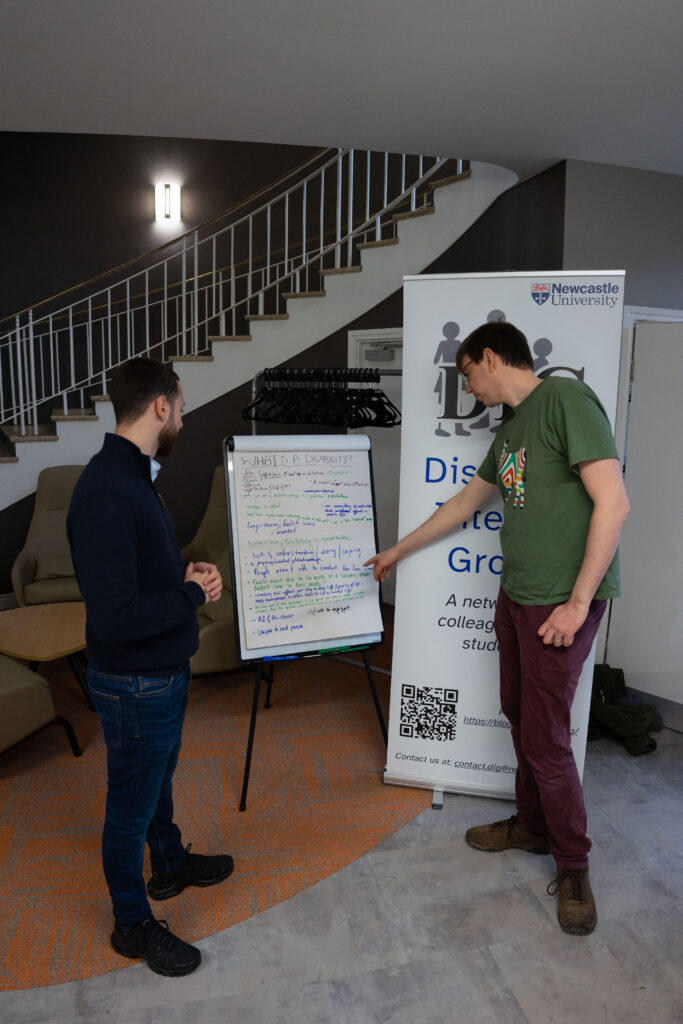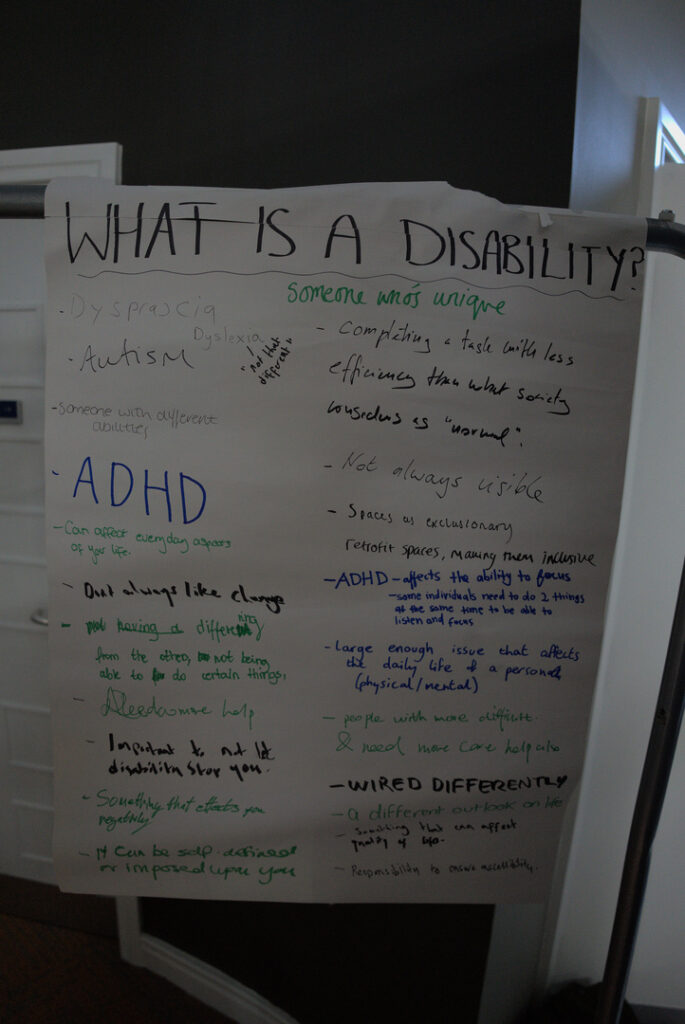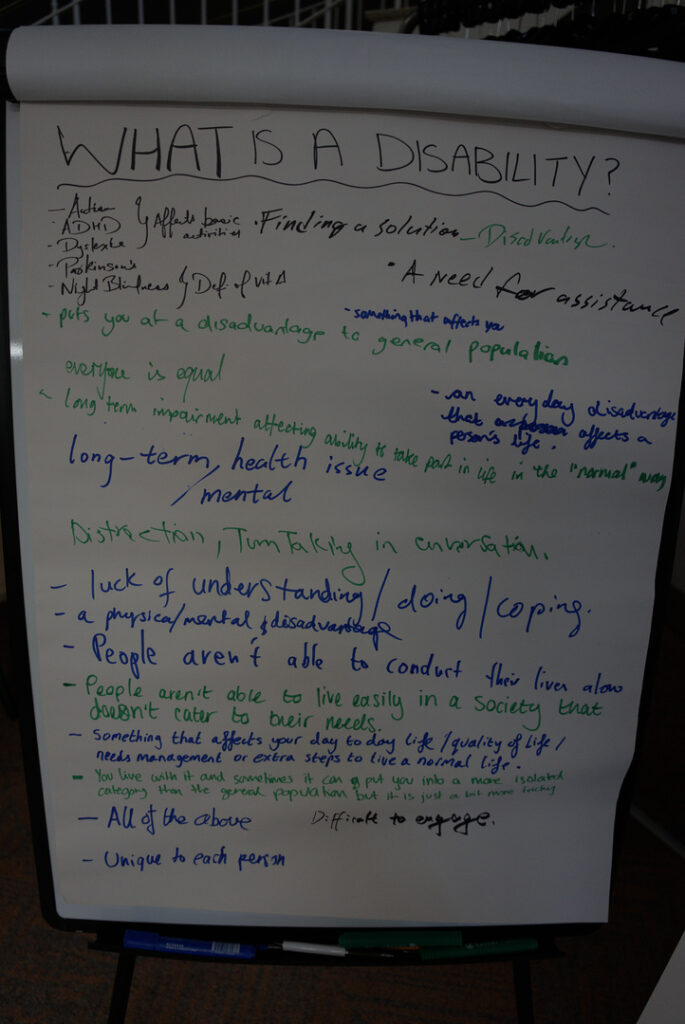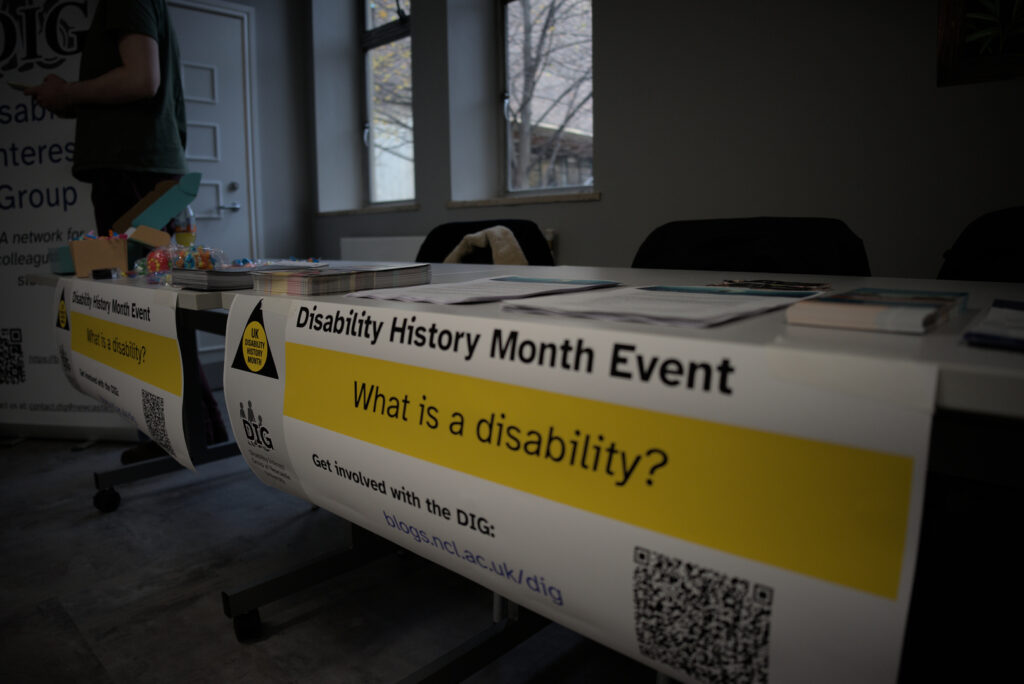Our event for Disability History Month on November 30th was a success, with over 50 people stopping by to respond to our question, “What is a disability?”
We handed out a few flyers, and the fidget toys were a big hit!
It was great to hear a wide range of perspectives on disability, from just about every sector of the university: we talked to undergrads, postgrads, lecturers, professional services staff, as well a café worker who took a break from serving lunch to chat about accessibility.
We’ve collected the responses from the flipchart with the online responses on our padlet for the event; for posterity, here are all the responses in plain text:
A disability can be invisible. You can’t always tell that someone is disabled just by looking at them, or by observing their behaviour.
A disability can be part of identity It can become part of your identity and the environment can help this to be a positive, connecting, and empowering experience.
Not always visible.
Completing a task with less efficiency than what society considers “normal”.
Dyspraxia.
ADHD.
Autism.
Someone with different abilities.
An opportunity to explore other areas of life that we might not have done without our disability.
Spaces as exclusionary Retrofit spaces, making them inclusive.
ADHD. Affects the ability to focus. Some individuals need to do 2 things at the same time to be able to listen and focus.
Large enough issue that affects the daily life of a person (physical / mental).
People with more difficulty. And need more care help also.
WIRED DIFFERENTLY.
A different outlook on life.
Can affect everyday aspects of your life.
Don’t always like change.
Differing from others, not being able to do certain things.
Need more help.
Important to not let disability stop you.
Something that affects you regularly.
It can be self defined or imposed upon you.
Something that can affect quality of life.
Responsibility to ensure accessibility.
Deviation from the norm.
Someone who’s unique.
“not that different”.
Dyslexia.
Autism, ADHD, duslexia, Parkinson’s, night blindness.
Disadvantage.
A need for assistance.
Something that affects you.
Puts you at a disadvantage to general population.
Everyone is equal.
An everyday disadvantage that affects a person’s life.
Long term impairment affecting ability to take part in life in the “normal” way.
Long-term health/mental issue.
Distraction, turn-taking in conversation.
Lack of understanding / doing / coping.
A physical / mental disadvantage.
People aren’t able to conduct their lives alone.
People aren’t able to live easily in a society that doesn’t cater to their needs.
Something that affects your day to day life / quality of life / needs management or extra steps to live a normal life.
You live with it and sometimes it can put you into a more isolated category than the general population but it is just a bit more tricky.
All of the above.
Difficult to engage.
Unique to each person.
Something physical or mental health related that can prevent you from doing things that others take for granted.
Something that people without your disability can often find hard to empathise with/understand/take into consideration.
Something that people are sometimes afraid/suspicious of.
Respondents had a range of experiences of disability. Some spoke at length about their own experiences, while others hadn’t thought about the topic much before.
Thanks to our student intern helpers, Taz Nasif-Whitestone and Louis Gojcaj, and James Pert from Student Services for helping to run the stall.
We plan to reflect on the responses in our next DIG Steering Group meeting, to understand themes among the responses and whether this can inform our work in 2024.
The DIG is open to everyone at Newcastle University; you can become a member by joining our mailing list or Teams group.
If you have a question for us, please email us at contact.dig@newcastle.ac.uk.
